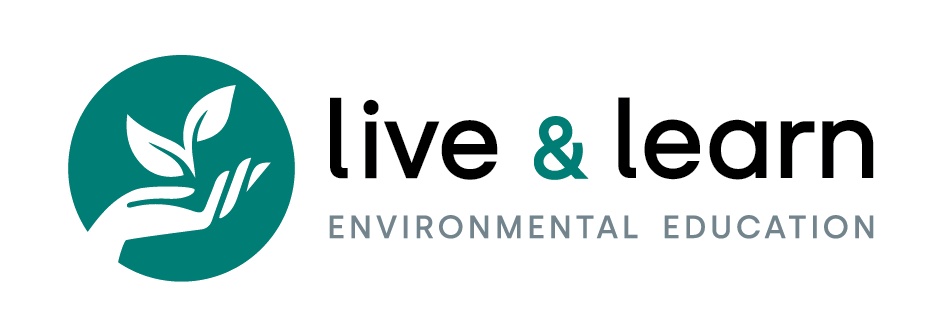The world is facing huge challenges today. Climate change, COVID-19, poverty, environmental breakdown and more are all putting strain on people across the planet. Vulnerable and marginalised groups experience the biggest impacts from these stresses – including women.
Women make up the majority of the world’s poor and often take on huge responsibilities in raising children, running households, working in the community and more, but they are traditionally excluded from leadership roles and positions of power.
This year’s International Women’s Day theme, ‘Gender equality today for a sustainable tomorrow’, recognises that it’s only by including women in these systems and roles that we can meet the challenges we are currently facing and build towards a fair and sustainable future for all.
Women across the world are doing incredible work to build this future – including at Live & Learn.
Live & Learn has local offices in 10 countries across the South Pacific, Southeast Asia and the Indian Ocean. Eight of these are led by women, and all have high numbers of women working or volunteering for them.
Having so many women throughout the Live & Learn network ensures their voices are heard when solving problems from water, sanitation and hygiene to climate resilience.
This is exactly what Glarinda Andre, Country Manager of Live & Learn Vanuatu, tries to do each day.
“My goal every day is ‘bringing voices to unheard stories’,” Glarinda says. “I’m grateful to hold this leadership position in Vanuatu.”

Glarinda (third from left) with her team
Since joining Live & Learn Vanuatu, Glarinda has moved from Project Officer to Team Leader, before moving up to lead the team in 2016. While it is a challenging role, she has enjoyed being able to have a positive impact on her country as a woman leader.
“In leadership it is important to always define the reality of people first since everything that revolves around birth, earth and humanity in our Vanuatu societies are intertwined,” Glarinda says.
“The society we belong to evolves with history based on different values, cultures and languages, but great women leaders have shown that our Vanuatu cultures have a lot of hope, humour and love that always gives our people a sense of place.”
Betty Amos, Gender Officer at Live & Learn PNG, also emphasises the need for women’s perspectives to be represented.
“Women contribute immensely to their households, communities and professional fields, but they need to be heard,” Betty says. “This is why more women leaders are needed in PNG and the Pacific, as they are the ones who will speak on behalf of the silent majority: women.”

A workshop for women run by Live & Learn PNG
In her daily work with Live & Learn PNG, Betty often faces challenges when trying to improve the lives of the women she works with. But she doesn’t let the challenges set her back.
“To be there on the ground is challenging, particularly in a male-dominated society,” Betty says. “It is very difficult to change people’s attitudes. For [project] implementers, it can be a long shot; we depart communities with a lot of questions. Is it going to work? Will I see tangible benefits in six months’ time? The list goes on.
“But I take comfort in little changes. If one or two people, especially women, can embrace what we at Live & Learn have given them in terms of trainings and workshops, then I’m satisfied. And for changes to get noticed, we need vibrant leaders to take these on.”
One such leader is Cecilia Tohiam, Health & Schools WASH Co-ordinator with Live & Learn PNG. Despite the difficulties of her role, including navigating political complexities and dealing with a large workload, Cecilia always works to pass on her knowledge to as many people as she can.
“Being influential, being innovative and being a good role model while teaching has been part of me,” Cecilia says. “Having a positive mindset helps me see where and what needs to be done within the organisation. I perform tasks under my job description as well as mentoring young, new officers.
“As a leader in this field, I would like to do the same and more for this organisation with this same drive in me.”
Focusing on gender equality in WASH, Cecilia’s area of expertise, is essential to creating good outcomes. Ensuring systems and infrastructure work as well for women and girls as they do for men and boys is crucial to improving livelihoods in a fair and sustainable way.
Cecilia hopes to achieve this across all segments of society.
“Some of the ways to support and advocate for all women in our countries is through valuing women’s contributions at home and in the workplace; creating equal opportunities for women in the workforce, schools, elections and more; advocating more on women’s causes; and respecting women and girls with no discrimination or harassment,” Cecilia says.
Cecilia says that women leaders are essential to implementing these changes.
“For a greater change and greater benefits, it’s good to have more women leaders, because for so long now the male gender have had their turn,” she says.
“If women can manage a home, then they are well qualified to also manage a department, company or country.”
The wonderful work being done by Glarinda, Betty, Cecilia and so many more women across the Live & Learn network is taking us closer to a fair, equal and sustainable world each day.
What does IWD mean to you?
Glarinda: Letting the untold stories be heard – create an opportunity when you have the power to unfold the untold stories to give our people a sense of place. That’s all that matters!
Betty: IWD to me is about recognising and appreciating all the hard-working women out there.
Cecilia: This important day is about recognising women as important in development, celebrating some of the achievements, and trying to get the support and respect from the male gender.

